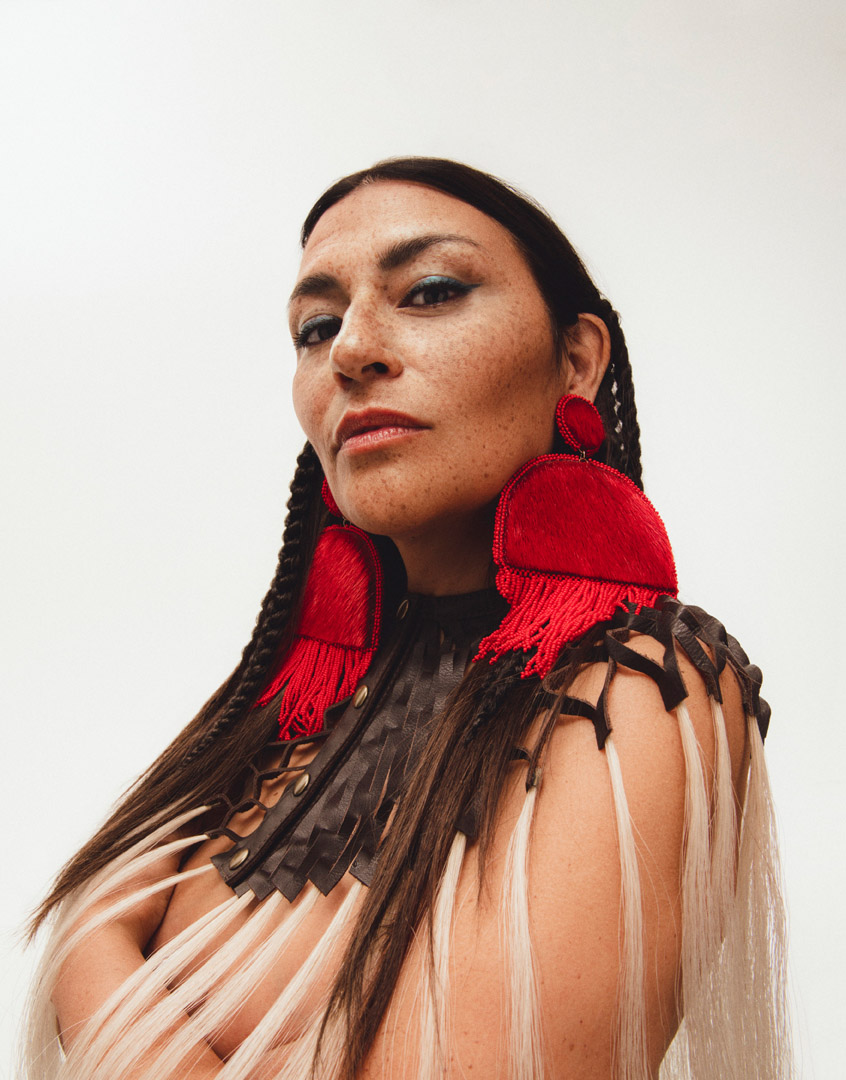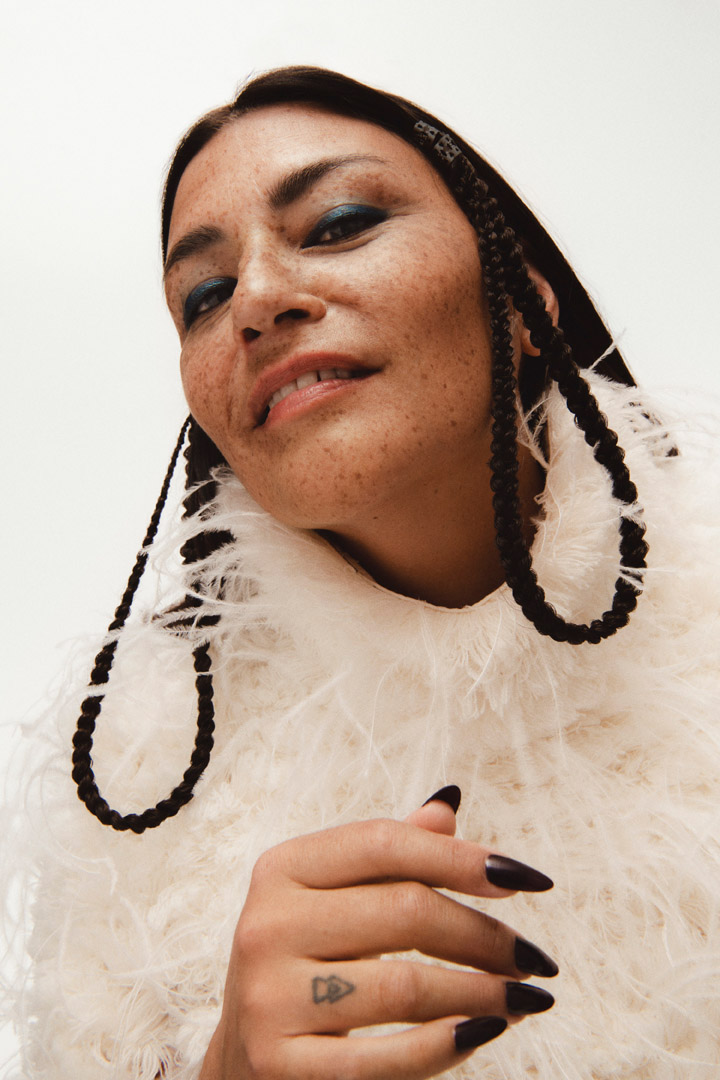On Inuktitut, Elisapie Turns the Healing Power of Music All the Way Up
Time after time.

“It all started with Led Zeppelin,” Elisapie says.
Zeppelin’s ballad “Going to California” is featured on Inuktitut, Elisapie’s cover album of 10 pop and rock classics each connecting to a specific memory or loved one of hers, growing up in Salluit, Nunavik, Quebec. Songs by Blondie, Metallica, Leonard Cohen, Fleetwood Mac, Cyndi Lauper, and more are translated into Inuktitut, redefining the music that soundtracked Elisapie’s adolescence, and the stories of her family, friends, and community: “Going to California” is Californiamut.
Zeppelin was an influence on Sugluk, the popular folk-rock band that Elisapie’s uncle, George Kakayuk, co-founded in the 1970s. Later, the band gave Elisapie her first gig as a backup singer when she was a teenager. Sugluk wore their hair long and denim ripped, like Bonham, Plant, Page, and Jones did. But the inspiration was bigger than look and sound. Zeppelin made Elisapie’s uncles “feel like they could express themselves in a very modern way, when it was really hard to express themselves,” she says.

“They went to residential schools, and then they were back in the village, and that’s where the gap began. And my grandfather, who was this traditionalist, of course he wasn’t really understanding of his son—but his son had Led Zeppelin, and he was able to just break free with all his emotions through them.”
The process of making Inuktitut was “so personal,” Elisapie says. “So scary, and feeling, like, how far do I go into those stories that are not necessarily mine personally, but from my point of view?” She refers to “Qaisimalaurittuq (Wish You Were Here)” to explain how translating the songs offered new meaning to the lyrics and deeper context to the memories conjured. She initially hesitated to cover Pink Floyd, but the more she listened to the song, the more it felt right.

“It’s like I already understood it in my language, and it already went through the process. That’s how I realized that by choosing the songs that really are meaningful, even if they’re huge pop songs that played on the radio… it’s taking me there, because the emotion and the story takes place right there. And that’s where all the memories have been kind of buried, you know?”
Plus, the psychedelic soundscapes perfectly captured the expansiveness of Salluit. “The North is that way, when you think about it,” Elisapie says, adding, “I’ve heard some crazy stories about the North that elders would have, that were, like, whoa.”
Music always had an important role in Elisapie’s life. She was a sensitive kid growing up in a tough environment, and music represented something calm and pure. It became part of her, she says. “A personal need.” On “Uummati Attanarsimat (Heart of Glass),” that girlhood innocence is heard in the sweetness of Elisapie’s voice, in arrangements of guitar, drums, and viola that begin delicately and gradually swell with joy. It recalls one night, when Elisapie was a child, that she stayed up late dancing to Blondie with her cousins. It was that intense, exhilarating time when summer arrives and the sun is out for 24 hours. The instrumentation on the song, and across Inuktitut, featuring players including Joe Grass (who also produces), Robert Kuster, Leif Vollebekk, and the Westerlies, is minimal but powerfully so, allowing emotion to lead.


“Revisiting that little girl, also, I was able to really have the tools and resources, emotionally, to see the beauty,” Elisapie considers. “I think being able to go back and realizing, huh, it was sad. I think people were sad. It wasn’t fair what was going on. And to really go there and to also make peace with myself, I think it allowed me to make room for the beauty of the North, of the people, and the beauty of the past. How we can always change it a little bit, if we want to, if we need to. Without cheating—but to create a little bit of magic.”
Elisapie set out to make her fourth solo album for herself and her family, a gift that could bring lightness to their pain. This is the music that shaped her, the people who shaped her. She wasn’t prepared for how well Inuktitut has been received, winning her the 2024 Juno Award for Contemporary Indigenous Artist of the Year and being shortlisted for the Polaris Music Prize. “It just brought so many people together, brought many people to me.”
The album takes a beautiful approach to storytelling, while demonstrating how other people’s songs can truly become yours, especially when they’re linked to intimate experiences. Elisapie hopes Inuktitut offers a bridge between Indigenous and non-Indigenous cultures, an exchange of energy to receive and learn. She’s learned how, no matter who you are, everyone has deeply personal memories connected to the songs on this album. “It’s really, really special for me to know that. It always seems complicated, but it can be that easy to connect and to share the same experiences.”
Elisapie adds with a smile: “This was supposed to be a side project. And it’s probably been my most important project.”
Photography by Leeor Wild.




